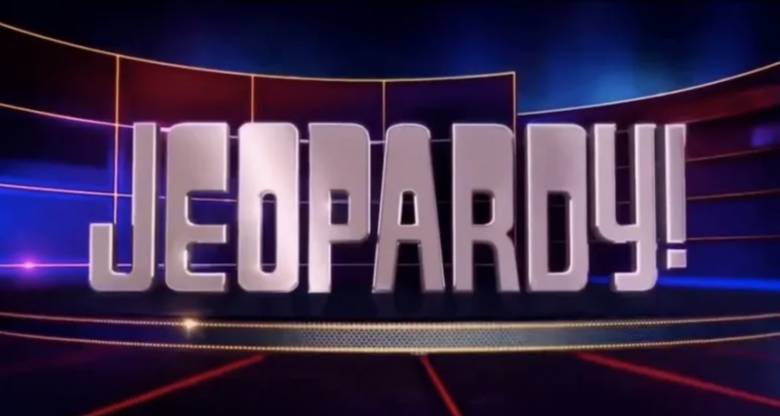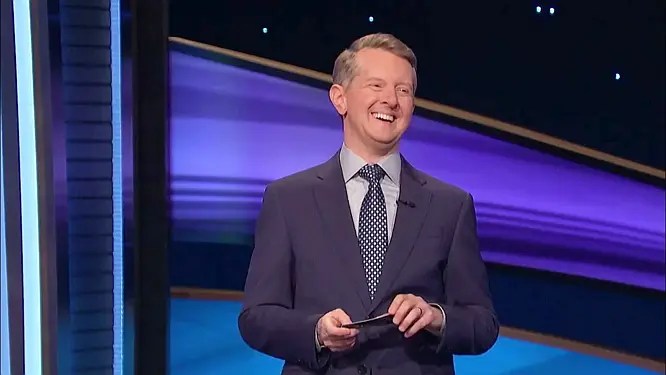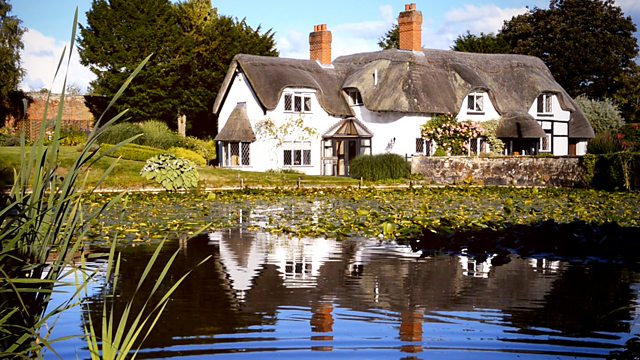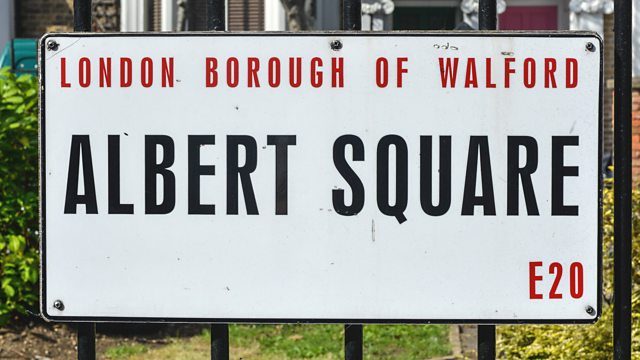In a couple of sentences, can you please tell us a little bit about your character?
Kevin Salisbury is a metropolitan police officer nearing the end of his career. He could take retirement now, but his personal life is in a mess, so I think he wants to keep on working as long as he can to take the pain away from what’s going on elsewhere. He’s also on a charge for assaulting an officer for a racist comment, so he’s in a bit of a mess generally. Probably the last thing he wants is to be is to be sent to Nottingham, which has memories and echoes of things past. But this huge investigation comes up and he has no choice – either he goes or he’s going to be forced to retire. So, it’s a sort of fait accompli really. But he’s complex, he’s got a sense of humour sometimes, he’s just like everybody.
What attracted you to the role?
That sort of sensitivity, the sort of flawed character that he is. The fact that he’s a good cop, but he’s prone to mood swings. And it’s just nice to play a multi layered character as opposed to somebody who is just predominantly one thing. It was the fact that he was a sort of contradiction in many ways. There’s a sensitivity to him, empathy and compassion within, but he also has his problems.
The series examines modern Britain’s social fabric, but it’s also a really compelling mystery crime drama. Can you talk about how the two elements kind of work side by side, and how you found that as an actor?
It was based on two true events, these deaths that took place in this small village in Nottingham and the miners’ strike. And one feeds into the other. So these deaths hadn’t occurred, then the old wounds wouldn’t have been reopened.
Because the two killers disappeared into Sherwood Forest, Nottingham police didn’t have the capability or the manpower to find them, because Nottingham Forest is vast, and because of the canopy you can’t get a helicopter or drones or anything. So, then they got the Met back up not thinking, of course, that it would rekindle those feelings that existed in 1984. And there’s a very specific element in this, where Kevin is haunted by it really, because things occurred when he was a younger police officer that probably affected him and his whole life and his career.
Consequently, it’s an examination of the fragility of the social fabric that exists in this country, not just in this country, but elsewhere as well, and something that’s long festered and been suppressed. Those within these mines, specifically within these mining communities – it doesn’t take much to get a resurgence of that enmity. I remember it was a grim time, I was in my mid-20s and people really suffered.
Did it open your eyes to anything you didn’t know?
Probably not really no. I was brought up in a fairly left wing, not militantly, but a left wing family. My dad was a very strong union member. He worked in television and he was president of the Directors Guild. So, I was very aware of it. What was upsetting and what we’ve seen subsequently, in things like Billy Elliot is the anger and the betrayal felt by those who stayed out on strike and the suffering they had and the feelings of those who didn’t join the strike and felt a moral and ethical responsibility towards their loved ones. It was a no-win situation, I think. It lasted a year, people forget that. Prior to that there was a strike during Ted Heath’s government in 1972, which lasted a matter of months, but this was a year which was a hardship that was just devastating for everybody.
It’s a very contemporary story with a lot of resonance in today’s world. What do you think will resonate most strongly with audiences?
Maybe how fragile communities can be fractured, or how easy it is for communities to be fractured, but also how steadfast communities can pull together in very, very hard times. And how politics and politicians, knowingly or unknowingly, blight communities and their families. Ken Loach made a film, a documentary where he put forward the assertion that from the 70s the Conservative Party had been trying to manufacture tactics in order to bring down the mining industry. And that’s 14 years prior to where our story is set. So, I think from a political point of view, and I don’t think politicians are the most popular people at the moment – not just here, but globally – that’s what a lot of people resonate with. It’s a double-edged sword: how easily communities can be broken, and alternatively, how strong they can be and stay together, it’s a very delicate line.
Community is a big theme within the series, how does your character fit in with the community?
He doesn’t really. The thing is he has a history there, because as a young officer, when he was 20, he was seconded to Nottingham to help the Nottinghamshire police. Their function there was to enable those miners that wanted to continue to work to get into the pits. And he fell in love with somebody, a local girl in in the Nottinghamshire village and that’s never left him. He went off and had another life after that, but when he comes back it is inevitable that he’s going to see her. That love story and his involvement with her also caused events that had long-lasting ramifications for the community. Of course, when he returns and people find out who he is he’s persona non grata because of the chaos he caused 40 odd years ago. So, he doesn’t really fit in.
What was it like to work with the rest of the cast?
It was great. I mean, when you get to my age, alas, I think I knew everybody, all the principal cast, apart from a few of the younger ones. But it was a great crowd. We all stayed in the same place. We have fantastic people coming in, you know, Joanne Froggatt, Lesley Manville, Claire Rushbrook, Kevin Doyle, Alun Armstrong, Stephen Tompkinson, Philip Jackson, Lorraine Ashbourne, Adeel Ahktar, the list goes on! Someone like Lindsey Duncan coming up to do to a few scenes, that’s a bit of a coup as well!
There’s a particularly brilliant piece of casting in the younger version of yourself as well as your son, Tom, plays the younger you, what was that like?
Well we didn’t actually do anything together, all the flashback scenes were shot in the two weeks after we’d pretty much finished all of the present-day stuff. I just thought, and I know I’m his dad, but I think he’s a terrific actor. I think he’s got something special. I contacted James Graham initially about Tom and I said, “Look, this is this is shamelessly nepotistic, but my boy has been out of drama school three years, he’s terrific. He’s been working and all the rest of it, can you have a word with the powers that be and just see if they’ll let him put himself on tape?”
And Tom did that and went up against a load of people who were up for the part, it wasn’t me saying ‘give him the gig’ or anything, he went through the process with everybody else. It wasn’t an immediate decision, it took a while for everybody to come together and for the BBC to have a look under consideration but he got the part. Previously I have thought we didn’t really look alike, I mean, there’s a sort of family resemblance, but actually looking at the episodes when we were ADRing them [Addition Dialogue Recording] I was looking at me, and looking at Tom, and (laughs) yes he’s got more hair, he hasn’t got beard, and he’s much thinner, but we do we do sort of look alike!
It’s James Graham’s most personal work so far. How closely have you worked with him across the project?
I’m a huge fan of James. The only time our paths have crossed before was when I did a workshop of a play he wrote called Privacy. I didn’t actually do the production, but I did the workshop and I’ve always loved his work. I love Quiz. I love This House. And I was really chuffed to be to be asked to do this with him.
What I love about James is that he’s not there on set every day. Writers tend not to be on telly anyway, but if you’ve got any ideas, if you’ve got things that you’re not quite sure about he is so accessible. You say to either James or Lewis Arnold, “Look, I’m not sure about this” or “I’m finding this a bit difficult” – he will listen and he will do something about it. Not all writers are like that, some are very dogged, that’s fair enough as well. James is really, really great at listening and encouraging and I think he’s just a man of great integrity and a writer of great integrity.
There is no hesitation about approaching him because you know he’s a listener and I think he’s a fabulous writer, I think that he writes beautifully. The interweaving of all the different elements in Sherwood and to write for an ensemble cast of that size and give everybody a pretty decent crack of the whip, that takes a lot of skill.












